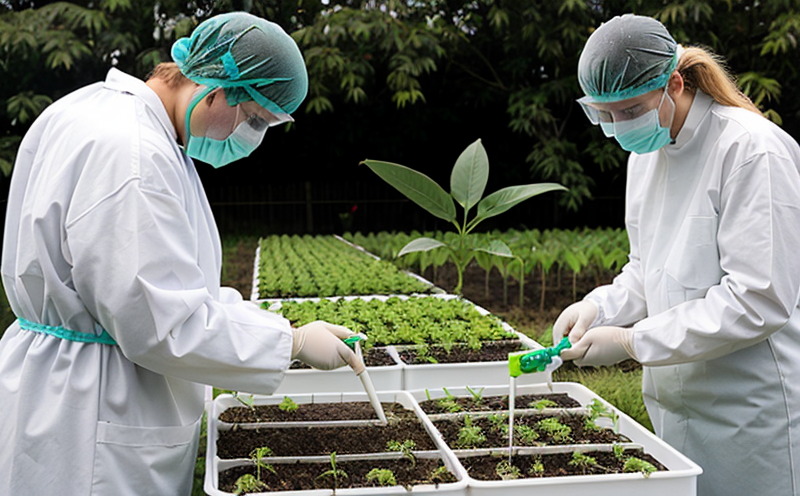Seed-Borne Fungal Pathogen Testing
Seed-borne fungal pathogens are a significant challenge in agriculture and forestry. These microorganisms can remain dormant within seeds, leading to the spread of diseases that affect plant growth, yield, and overall health. In many cases, these fungi do not become active until after germination or during early stages of plant development, making it critical for seed producers to ensure pathogen-free seeds before planting.
Seed-borne fungal pathogens are a major factor in crop losses worldwide, affecting both the quality and quantity of agricultural output. By detecting these pathogens at an early stage, farmers can take preventive measures such as using fungicides or resistant varieties to minimize potential damage during cultivation. This testing service plays a crucial role in maintaining high standards for seed health, thereby supporting sustainable agricultural practices.
The testing process involves several stages. Seeds undergo initial screening to identify those most likely to harbor pathogens based on their physical characteristics and origin. Following this step, selected seeds are subjected to detailed examination using advanced microscopy techniques and molecular diagnostic methods like PCR (Polymerase Chain Reaction). These tools allow for precise identification of specific fungal species present within the seed material.
Once identified, any positive samples would then be further analyzed through isolation procedures where viable cultures could be maintained. This enables researchers to study the behavior and potential impact of these fungi in controlled environments prior to large-scale introduction into fields or greenhouses. Additionally, this service provides valuable data for breeding programs aimed at developing new varieties resistant against common pathogens found in specific regions.
To ensure accurate results, our laboratory adheres strictly to internationally recognized standards such as ISO 17025 which governs proficiency testing schemes and quality assurance systems. Compliance with these guidelines guarantees that every sample processed meets rigorous criteria ensuring reliable findings regarding the presence or absence of seed-borne fungal pathogens.
| Application Area | Description |
|---|---|
| Seed Production | Detecting and eliminating fungal contamination helps maintain quality standards. |
| Crop Protection Programs | Understanding pathogen distribution aids in targeted pesticide usage. |
| Breeding Programs | Selecting disease-resistant lines improves overall crop resilience. |
| Genetic Engineering Research | Analyzing pathogen interactions provides insights into genetic modifications needed for resistance. |
Industry Applications
Seed-borne fungal pathogens impact various sectors within agriculture and forestry, including seed production, crop protection programs, breeding initiatives, and genetic engineering research. By detecting these pathogens early in the supply chain, stakeholders can implement strategies to protect plants from infection, enhance yields, and promote healthier ecosystems.
| Application Area | Description |
|---|---|
| Seed Production | Detecting and eliminating fungal contamination helps maintain quality standards. |
| Crop Protection Programs | Understanding pathogen distribution aids in targeted pesticide usage. |
| Breeding Programs | Selecting disease-resistant lines improves overall crop resilience. |
| Genetic Engineering Research | Analyzing pathogen interactions provides insights into genetic modifications needed for resistance. |
International Acceptance and Recognition
- The service complies with ISO standards, ensuring reliability and consistency in testing methods.
- Affiliations with major agricultural organizations like FAO (Food & Agriculture Organization) and CIARD (Consultative Group on International Agricultural Research).
- Participation in international proficiency testing programs organized by leading bodies such as AOAC International.
Environmental and Sustainability Contributions
By offering comprehensive seed-borne fungal pathogen testing, our laboratory contributes significantly to environmental sustainability efforts in agriculture. Early detection allows for the implementation of integrated pest management practices that reduce unnecessary chemical inputs into ecosystems. Moreover, this service supports breeding programs focused on creating resilient crop varieties capable of withstanding challenging conditions without compromising yield or quality.
Our commitment extends beyond just providing tests; we also offer training sessions and workshops aimed at educating professionals about best practices for maintaining seed health throughout the supply chain. These initiatives foster a culture of responsibility among industry players, encouraging them to adopt sustainable approaches that benefit both current and future generations.





